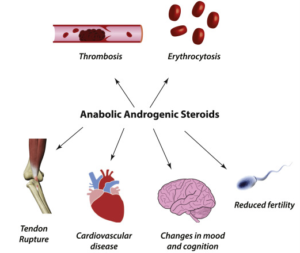Don't miss our holiday offer - up to 50% OFF!
Healthy Lifestyle: 10 Tips for a Happier and Healthier You
Table of Contents
Living a healthy lifestyle is a comprehensive approach that includes physical, mental, and emotional health. It's essential for a high-quality life and should be prioritized despite a busy schedule.
Importance of a Healthy Lifestyle
A healthy lifestyle is vital for preventing chronic diseases, boosting immunity, and enhancing overall well-being, leading to increased energy, better mood, and higher productivity.
Tips for a Healthy Lifestyle
Eat a Balanced Diet
- Include a variety of fruits, vegetables, whole grains, lean proteins, and healthy fats.
- Limit processed foods, high-fat foods, sugar, and salt.
A balanced diet is the cornerstone of good health, providing your body with the essential nutrients it needs to function optimally. This includes fruits, vegetables, whole grains, lean protein, and dairy.
- Fruits: Powerhouses of vitamins, minerals, and fiber, fruits are a delicious way to boost your daily intake of these crucial nutrients. Aim for at least 5 servings of fruits and vegetables combined each day.

- Vegetables: Don't forget the veggies! Vegetables offer a wide range of vitamins, minerals, and fiber, just like fruits. Include a colorful variety of vegetables in your healthy lifestyle to maximize your nutrient intake.

- Whole Grains: Whole grains are a great source of complex carbohydrates, which provide your body with sustained energy. They are also packed with fiber, which is important for digestion and gut health. Choose whole-wheat bread, brown rice, quinoa, oats, and other whole grains over refined grains whenever possible.
- Lean Protein: Protein is essential for building and repairing tissues, and it plays a vital role in many bodily functions. Include lean protein sources like fish, poultry, beans, lentils, nuts, and seedsin your meals and snacks.
Sample Balanced Meals for Optimal Health:
- Breakfast:
- Kickstart your day with a nutritious breakfast like high-fiber oatmeal topped with fresh berries and nuts for added protein and healthy fats.
- Another option is whole-wheat toast with a creamy avocado spread and a poached egg for a complete and satisfying meal.
- If you're short on time, grab a protein-packed Greek yogurt parfait with your favorite fruits and a sprinkle of granola for a quick and delicious on-the-go breakfast.
- Lunch:
- Pack a power salad for lunch, featuring grilled chicken or fish for protein, a variety of colorful vegetables for vitamins and fiber, and a light vinaigrette dressing.
- A whole-wheat wrap filled with hummus, roasted vegetables, and lean protein like turkey or tofu is another healthy and portable lunch option.
- For a warm and comforting lunch, try lentil soup made with protein-rich lentils and served with a slice of whole-grain bread.
- Dinner:
- Baked salmon with roasted vegetables and brown rice is a classic balanced meal that's both delicious and nutritious.
- If you're looking for a lighter option, try a chicken stir-fry with brown rice noodles and a variety of colorful vegetables.
- Vegetarian? Opt for lentil pasta tossed with marinara sauce and a medley of sauteed vegetables for a satisfying and protein-packed plant-based dinner.
- Snacks:
- Healthy snacking is key to maintaining a balanced diet and keeping your energy levels up throughout the day. Choose nutrient-rich snacks like fruits and vegetables with hummus, a handful of nuts and seeds, or a cup of Greek yogurt with berries.
Remember: A balanced diet is all about variety and moderation. By incorporating these different food groups throughout the day, you can ensure your body is getting the nutrients it needs to thrive.
Stay Hydrated
- Drink at least 8 glasses of water daily, more if active.
Tips for Staying Hydrated:
- Carry a reusable water bottle: Keep it with you wherever you go to encourage consistent sipping.
- Flavor your water: Add slices of lemon, cucumber, or berries for a refreshing twist.
- Set reminders: Use your phone or a water tracking app to remind yourself to drink throughout the day.
- Eat water-rich fruits and vegetables: Many fruits and vegetables like watermelon, cucumber, and leafy greens have a high water content and can contribute to your daily hydration needs.
- Choose water over sugary drinks: Sugary drinks can dehydrate you further and contribute to health problems.
Staying hydrated is a simple yet powerful way to invest in your health and well-being. Make water your go-to beverage and feel the difference!
Exercise Regularly
Aim for 30 minutes of moderate exercise, like brisk walking, five days a week.
Regular exercise isn't just about aesthetics (although that's a bonus!). It's a cornerstone of a healthy lifestyle, offering a multitude of benefits for your physical fitness and mental well-being. Here's how incorporating physical activity into your routine can supercharge your health:
Physical Benefits:
- Cardiovascular health: Exercise strengthens your heart and lungs, improving circulation and reducing your risk of heart disease, stroke, and high blood pressure.
- Weight management: Regular physical activity helps you burn calories and manage your weight, contributing to a healthy body mass index (BMI).
- Strength and endurance: Exercise builds muscle mass and improves your stamina, making everyday activities easier and more enjoyable. Often searched for as muscle building workouts or cardio workouts for endurance.
- Bone and joint health: Weight-bearing exercises like walking, running, and strength training can help maintain strong bones and reduce your risk of osteoporosis. Look for terms like osteoporosis prevention exercises.
- Flexibility and balance: Regular movement keeps your joints limber and improves your balance, reducing your risk of falls. You can target these with flexibility exercises and balance training.
Mental Benefits:
- Stress and anxiety reduction: Physical activity releases endorphins, hormones that have mood-boosting effects and can help combat stress and anxiety. Look for terms like stress relief exercises or workouts to reduce anxiety.
- Improved sleep quality: Regular exercise can help you fall asleep faster and experience deeper, more restful sleep. Search for terms like exercises for better sleep.
- Enhanced cognitive function: Studies have shown that exercise can improve memory, focus, and concentration. Look for terms like brain health exercises or workouts to improve memory.
- Boosted self-esteem: Reaching fitness goals and feeling stronger can give you a confidence boost and improve your overall self-esteem.
Getting Started with a Regular Exercise Routine:
The good news is, you don't need to become a gym rat to reap the benefits of exercise. Here are some tips to jumpstart your fitness journey:
- Find activities you enjoy: From dance fitness to swimming, hiking to biking, there's an exercise routine out there for everyone. Choose activities you find fun so you're more likely to stick with them.
- Start slow and gradually increase intensity and duration: Begin with shorter workouts and gradually increase the length and intensity of your sessions as your fitness level improves.
- Aim for at least 150 minutes of moderate-intensity exercise or 75 minutes of vigorous-intensity exercise per week: This can be broken down into smaller chunks throughout the week. You can find resources for creating a weekly workout plan online.
- Incorporate strength training: Include strength training exercises that target all major muscle groups at least twice a week to build muscle mass and improve bone density. Look for strength training exercises at home or bodyweight exercises.
- Listen to your body: It's okay to take rest days when you need them. Pay attention to your body's signals and avoid pushing yourself too hard, especially when starting a new routine.
Remember: Consistency is key. By making regular exercise a part of your lifestyle, you're investing in your overall health and well-being.
Ready to get moving? Here are some resources to help you on your fitness journey:
- American Council on Exercise
- Centers for Disease Control and Prevention (Physical Activity)
- YMCA [invalid URL removed]
Let's get your body moving and experience the incredible benefits of regular exercise!
Get Enough Sleep
Just like a car needs fuel to run, our bodies need sleep to function optimally. Getting enough sleep isn't a luxury; it's a necessity for a healthy lifestyle. Here's why prioritizing sleep is essential for your well-being:
- Physical Health: During sleep, your body repairs tissues, strengthens your immune system, and regulates hormones that control appetite, growth, and metabolism. Insufficient sleep can increase your risk of chronic health problems like heart disease, diabetes, and obesity.
- Mental Well-being: Sleep is crucial for mental clarity, focus, and emotional regulation. When you're well-rested, you can better handle stress, manage emotions, and make sound decisions. Chronic sleep deprivation can contribute to anxiety, depression, and mood swings.
- Cognitive Function: Sleep is vital for memory consolidation and learning. While you sleep, your brain processes information and strengthens neural connections, allowing you to learn and retain information more effectively.
- Energy Levels: A good night's sleep leaves you feeling energized and ready to tackle the day. Insufficient sleep can lead to fatigue, decreased motivation, and difficulty concentrating, impacting your productivity and overall performance.
How Much Sleep Do You Need?
Sleep needs vary by age, but most adults require 7 to 9 hours of quality sleep per night to function at their best. However, some individuals may need slightly more or less sleep depending on their individual needs.
Tips for Getting Enough Sleep:
- Develop a consistent sleep schedule: Go to bed and wake up at the same time each day, even on weekends. This helps regulate your body's natural sleep-wake cycle.
- Create a relaxing bedtime routine: Wind down before bed with calming activities like taking a warm bath, reading a book, or practicing relaxation techniques. Avoid stimulating activities like watching TV or using electronic devices for at least an hour before bed.
- Optimize your sleep environment: Make sure your bedroom is dark, quiet, cool, and clutter-free to promote restful sleep.
- Limit caffeine and alcohol: While caffeine can give you a temporary energy boost, it can interfere with sleep later in the day. Alcohol may make you feel drowsy initially, but it can disrupt your sleep cycle later in the night.
- Get regular exercise: Regular physical activity can improve your sleep quality, but avoid strenuous workouts close to bedtime.
- See a doctor if you have sleep problems: If you're struggling to fall asleep or stay asleep, experiencing excessive daytime sleepiness, or suspecting a sleep disorder, consult your doctor for help.
By prioritizing sleep and creating healthy sleep habits, you're investing in your physical and mental well-being. Embrace the power of sleep and wake up feeling refreshed and ready to conquer your day!
Just like a car needs fuel to run, our bodies need sleep to function optimally. Getting enough sleep isn't a luxury; it's a necessity for a healthy lifestyle. Here's why prioritizing sleep is essential for your well-being:
- Physical Health: During sleep, your body repairs tissues, strengthens your immune system, and regulates hormones that control appetite, growth, and metabolism. Insufficient sleep can increase your risk of chronic health problems like heart disease, diabetes, and obesity.
- Mental Well-being: Sleep is crucial for mental clarity, focus, and emotional regulation. When you're well-rested, you can better handle stress, manage emotions, and make sound decisions. Chronic sleep deprivation can contribute to anxiety, depression, and mood swings.
- Cognitive Function: Sleep is vital for memory consolidation and learning. While you sleep, your brain processes information and strengthens neural connections, allowing you to learn and retain information more effectively.
- Energy Levels: A good night's sleep leaves you feeling energized and ready to tackle the day. Insufficient sleep can lead to fatigue, decreased motivation, and difficulty concentrating, impacting your productivity and overall performance.
How Much Sleep Do You Need?
Sleep needs vary by age, but most adults require 7 to 8 hours of quality sleep per night to function at their best. However, some individuals may need slightly more or less sleep depending on their individual needs.
Tips for Getting Enough Sleep:
- Develop a consistent sleep schedule: Go to bed and wake up at the same time each day, even on weekends. This helps regulate your body's natural sleep-wake cycle.
- Create a relaxing bedtime routine: Wind down before bed with calming activities like taking a warm bath, reading a book, or practicing relaxation techniques. Avoid stimulating activities like watching TV or using electronic devices for at least an hour before bed.
- Optimize your sleep environment: Make sure your bedroom is dark, quiet, cool, and clutter-free to promote restful sleep.
- Limit caffeine and alcohol: While caffeine can give you a temporary energy boost, it can interfere with sleep later in the day. Alcohol may make you feel drowsy initially, but it can disrupt your sleep cycle later in the night.
- Get regular exercise: Regular physical activity can improve your sleep quality, but avoid strenuous workouts close to bedtime.
- See a doctor if you have sleep problems: If you're struggling to fall asleep or stay asleep, experiencing excessive daytime sleepiness, or suspecting a sleep disorder, consult your doctor for help.
By prioritizing sleep and creating healthy sleep habits, you're investing in your physical and mental well-being. Embrace the power of sleep and wake up feeling refreshed and ready to conquer your day!
Manage Stress
- Use meditation, yoga, or conversation to cope with stress.
Practice Self-Care
- Engage in activities that bring joy and relaxation.
Avoid Harmful Habits
- Stay away from smoking, excessive alcohol, and drugs.
Surround Yourself with Positive Influences
- Choose supportive individuals who encourage a healthy lifestyle.
Stay Informed About Your Health
- Regular check-ups and being aware of health changes are key.
Make Time for Relaxation and Hobbies
- Prioritize activities that contribute to mental and emotional well-being.
Conclusion
Adopting these tips can lead to a healthier, happier, and more fulfilling life. Small daily changes can make a significant impact.
FAQs
- Starting points for a healthy lifestyle?
- Necessity of daily exercise?
- Ideal daily water intake?
- Physical health effects of stress?
- Daily routine healthy habits?
Healthy Lifestyle Components:
🌟 For more information on physical products to aid weight loss, visit EducHealth.
Read more: Accelerate Your Natural Weight Loss Journey in 90 Days



